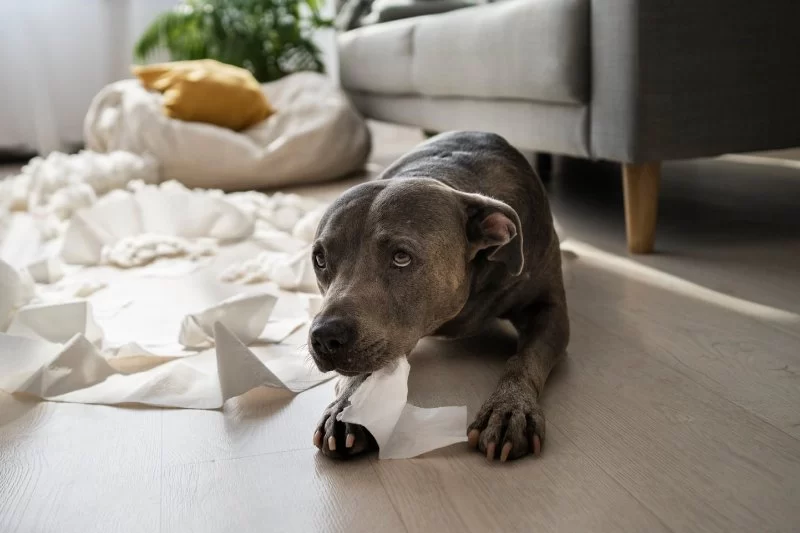How to Prevent Pet Anxiety Before It Develops
As a pet owner, ensuring the well-being of your furry companion is a top priority. One of the most common issues faced by pets, especially dogs and cats, is anxiety. However, did you know that anxiety can be prevented before it even develops? Understanding the signs, triggers, and preventative measures can help you keep your pet calm, happy, and stress-free. In this article, we’ll explore practical tips and strategies for preventing pet anxiety before it takes hold.
1. Understanding the Causes of Pet Anxiety
Before we dive into prevention, it’s important to understand the common causes of pet anxiety. Just like humans, pets can experience stress and fear, and their anxiety can stem from various factors:
- Separation Anxiety: Pets, particularly dogs, may feel distressed when left alone. This often happens when a pet has formed a strong bond with their owner.
- Changes in Environment: Moving to a new home, new furniture, or even a change in routine can cause pets to feel uneasy.
- Loud Noises: Pets are often sensitive to loud sounds like thunderstorms, fireworks, or construction noise.
- Previous Trauma: Pets that have been abused or neglected in the past may have lasting effects on their emotional well-being.
2. Recognizing the Early Signs of Anxiety
Recognizing the early signs of anxiety in your pet is crucial for effective prevention. Here are some common symptoms to watch out for:
- Excessive Barking or Meowing: Pets may vocalize more than usual when they feel stressed or anxious.
- Destructive Behavior: Chewing furniture, scratching doors, or digging holes can indicate anxiety.
- Changes in Eating or Sleeping Habits: A stressed pet may lose their appetite or have difficulty sleeping.
- Excessive Grooming: Some pets may lick or chew their paws when they are anxious.
3. Tips to Prevent Pet Anxiety Before It Develops
Now that we know what causes and looks like anxiety, let’s explore ways to prevent it:
1. Establish a Consistent Routine
Pets thrive on routine. A predictable daily schedule for feeding, playtime, and walks can help your pet feel secure. Consistency in their environment helps reduce stress and provides them with a sense of stability. Try to keep feeding times and walks around the same time each day to create a reassuring routine.
2. Gradual Desensitization
If your pet is prone to anxiety due to specific triggers, such as being left alone or exposure to loud noises, desensitization is an effective strategy. Gradually expose your pet to the stressor in a controlled and safe manner. For example, if your pet experiences separation anxiety, start by leaving them alone for short periods and gradually increasing the duration.
3. Provide Safe Spaces
Creating a designated safe space for your pet can provide them with a place to retreat when they feel overwhelmed. This could be a cozy bed, crate, or a quiet room where your pet can relax and feel secure. Ensure the space is free from disturbances and equipped with their favorite toys or blankets.
4. Use Positive Reinforcement
Positive reinforcement is a great way to boost your pet’s confidence and reduce anxiety. Reward your pet with treats or affection when they exhibit calm behavior. This will help them associate relaxation with positive experiences. Avoid punishing anxious behavior, as this may exacerbate the issue.
5. Incorporate Enrichment Activities
Boredom can contribute to anxiety, so it’s important to provide mental and physical stimulation for your pet. Interactive toys, puzzles, and regular play sessions can help keep your pet engaged. Taking them on walks, hikes, or visits to the park can also help burn off excess energy and reduce stress.
6. Consider Natural Calming Aids
If your pet continues to experience anxiety despite your efforts, natural calming aids such as pheromone diffusers, calming collars, or herbal supplements might help. Always consult with your veterinarian before introducing any new products to ensure they are safe for your pet.
4. Creating a Stress-Free Environment
It’s not just about what you do directly with your pet—your environment can have a significant impact on their anxiety levels. Here are some additional tips for creating a stress-free environment:
1. Limit Exposure to Stressful Stimuli
If your pet is sensitive to loud noises, try to minimize their exposure to them. You can close windows, use white noise machines, or play calming music to drown out disturbing sounds. If you live in an area with frequent storms or fireworks, consider using a Thundershirt to help soothe your pet during stressful events.
2. Provide Regular Socialization
Socialization is key in helping your pet feel comfortable in new environments and with new people or animals. Gradually introduce your pet to different situations, people, and pets in a calm and controlled manner. Positive socialization experiences will help them develop confidence and reduce anxiety in unfamiliar situations.
3. Keep Your Pet Physically Active
Exercise is a great way to release pent-up energy and reduce stress in pets. Take your dog for daily walks or engage in interactive play with your cat. A tired pet is generally a more relaxed and calm pet.
5. When to Seek Professional Help
While many cases of anxiety can be managed with the strategies mentioned above, some pets may require professional help. If your pet’s anxiety is severe, persistent, or affecting their quality of life, it’s important to consult with a veterinarian or a certified animal behaviorist. They can offer more specialized treatment, including behavioral therapy or prescription medications if necessary.
At Hidden Brook Veterinary, we provide expert advice and services to help manage your pet’s health and anxiety. Contact us today to learn more about how we can support you and your pet in maintaining a calm and happy life.












